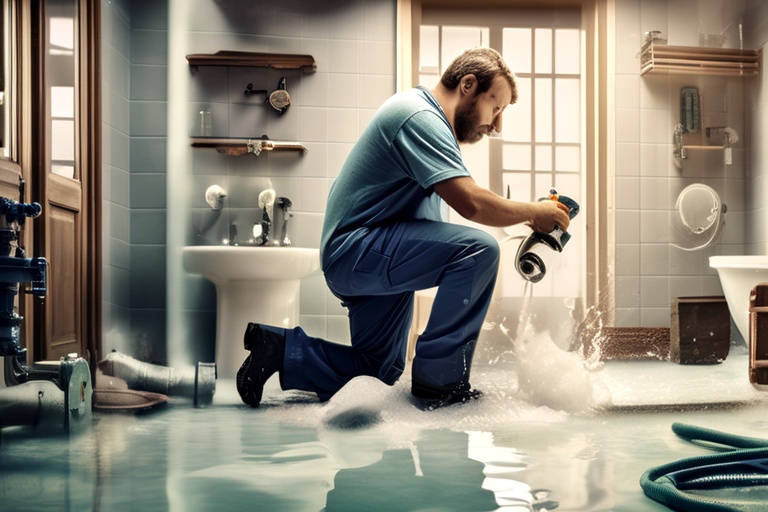Why is my plumbing making noise?

Understanding Noisy Plumbing: Causes and Solutions
As a homeowner, one common issue you may encounter is noisy plumbing. The sound of clanging pipes, gurgling drains, or banging noises can be disruptive and alarming. Understanding the potential causes of noisy plumbing can help you identify and address the issue effectively.
Causes of Noisy Plumbing
1. Water Hammer
One of the most common reasons for noisy plumbing is water hammer. This occurs when fast-flowing water is suddenly turned off, causing the pipes to vibrate and create a banging noise. Water hammer can be exacerbated by high water pressure or improperly secured pipes.
2. Loose Pipes
Loose pipes can also lead to noisy plumbing. As water flows through the pipes, the movement can cause them to knock against surrounding surfaces, resulting in clanging or banging sounds. Loose straps or hangers that support the pipes may be the root cause.
3. Air in the Pipes
Another possible cause of noisy plumbing is air trapped in the pipes. When air bubbles get trapped in the water line, they can create a gurgling or bubbling noise as water flows through. This issue is more common in hot water lines.
4. Clogged Pipes
Clogged pipes can also contribute to noisy plumbing. Blockages in the pipes can disrupt the flow of water, leading to strange noises like gurgling or bubbling. Addressing clogs promptly is essential to prevent further plumbing problems.
Solutions for Noisy Plumbing
1. Install Water Hammer Arrestors
Water hammer arrestors can help absorb the shock of fast-moving water and prevent the pipes from vibrating and creating noise. These devices are installed near the source of the noise to effectively dampen the impact.
2. Secure Loose Pipes
Securing loose pipes with straps or hangers can eliminate the movement that causes the banging sounds. By ensuring that the pipes are properly supported and secured, you can reduce or eliminate noisy plumbing issues.
3. Bleed Air from the Pipes
To address air trapped in the pipes, you can bleed the air out of the system. This involves turning off the water supply, opening the faucets to release the air, and then turning the water back on to flush out any remaining air bubbles.
4. Clear Clogged Pipes
If clogged pipes are the source of the noise, it is essential to clear the blockages to restore normal water flow. Depending on the severity of the clog, you may need to use a plunger, plumbing snake, or contact a professional plumber for assistance.
Conclusion
Noisy plumbing can be a nuisance, but by understanding the potential causes and implementing the appropriate solutions, you can restore peace and quiet to your home. Addressing issues such as water hammer, loose pipes, trapped air, and clogged pipes can help eliminate the disruptive noises and ensure your plumbing system functions smoothly.

